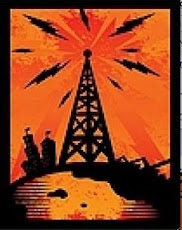When I asked Sujay what motivated his build of the site, he wrote "I've always sought out untainted sources of art and culture, and when I discovered college radio, I knew I found something great. I wanted an accessible map and playlist of the "best" stations and since I couldn't find them, I built them."
When I asked whether the site included local community radio stations or if its focus was solely college radio. Sujay explained his rationale:"After initial research, it seemed like most 'community' stations relied on NPR broadcasts or were run by professional DJs. I decided to limit the list to stations run by student volunteers. There are a lot of great stations that are not run by students, though, and that's why I'm working on a spin-off project right now that focuses on outstanding commercial-free radio shows from any station in the world."
This promising project may be part of the RADIOcollective grassroots work. From my brief email exchanges with Sujay, it seems that the value of promoting freeform radio is in its freedom for experimentation which is only possible with a freedom from regimentation. "To me, true freeform programming means that there are no rules. The DJ could broadcast static noise, satanic verses, or Top 40 hits. Obviously there are FCC guidelines, intellectual property restrictions, and hate speech regulations, but to me these are all forms of censorship."
Amen to that! In these days of homogenizing global consumer culture it is more crucial than ever to start creating our own. And when it comes to important issues, can't we find more serious moral considerations than whether or not someone has a potty-mouth?
Marlon Brando supplies a succinct analysis of our potty-mouth paranoia in his
Colonel Kurtz monologue from Apocalypse Now: “We train young men to drop fire on people but their commanders won’t allow them to write fuck on their airplanes because it’s obscene.” Is the broadcast of words like "fuck" and "shit" really a serious crime worthy of the significant legislative and enforcement costs involved? I wonder what the total annual cost would be?
Maybe the FCC's trivial obsession with taboo words is really just an effective distraction from their consistent promotion of media monopoly - just one more reason that grassroots radio is an increasingly important medium to use and support.











